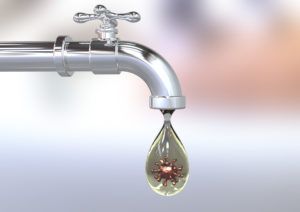
As of June 24, 2022, the Camp Lejeune Justice Act of 2022 has nearly crossed the finish line to becoming law, allowing victims of water contamination at Camp Lejeune to file for compensation. If you have concerns about what to do if you were exposed to water contamination at Marine Corps Base Camp Lejeune, it is beneficial to understand:
- What the law means for victims of exposure to toxic water at the base
- Who qualifies to file a lawsuit under the new law
- What the qualifying conditions are for potential litigants
- How to join a class-action lawsuit
- How long you will have to file your claim
This guide offers details about registering your claim once President Biden signs the Act into law.
Who Can File a Lawsuit Under the Camp Lejeune Justice Act?
The law will allow individuals who lived or worked at Camp Lejeune in North Carolina “for not less than 30 days during the period beginning on August 1, 1953, and ending on December 31, 1987” to file suit in the Eastern District of North Carolina. These individuals include:
- Military personnel stationed at Camp Lejeune and their families
- Civilians who worked at or lived near the camp
- Children harmed from contaminated water exposure during their mother’s pregnancy
- Family members of victims who have since passed away due to diseases caused by exposure
CBS News reported how under previous law, the U.S. Department of Veterans Affairs (VA) approved just 17% of Camp Lejeune compensation claims for conditions they developed due to exposure to the base’s contaminated water. Therefore, the new law is welcome news for Marines who had their claims denied and civilian workers who were ineligible to receive benefits under the previous system.
Additionally, individuals who receive benefits from the VA or Social Security related to treatment connected to toxic water exposure at Camp Lejeune can also file. However, damages recovered from a lawsuit would likely offset your benefits under those programs.
What Are the Qualifying Conditions for Filing a Water Contamination Lawsuit?
The Agency for Toxic Substances and Disease Registry reports that up to one million people might have been exposed to hazardous chemicals from contaminated water at Camp Lejeune over 34 years. To file a lawsuit, you will need to meet these criteria.
You Worked, Lived, or Were Otherwise Exposed to Camp Lejeune’s Water Supply Between August 1, 1953, and December 31, 1987
Besides the main base, other installations over the 156,000-acre site count as part of “Camp Lejeune”:
- Marine Corps Air Station New River
- Hadnot Point
- Holcomb Boulevard
- Onslow Beach
- Tarawa Terrace
- Paradise Point
- Stone Bay Rifle Range
- Camp Geiger
- Camp Johnson/Montford Point
- Camp Lejeune Greater Sandy Run
You Were Exposed to Contaminated Water for a Minimum of 30 Days
If you lived on the base, you would likely meet this condition. However, exposure for at least 30 days also applies to non-consecutive visits, provided they total at least 30 days between the dates listed above.
You Developed an Illness or Disease Associated With Exposure to Contaminated Water at Camp Lejeune
At present, illnesses or diseases associated with exposure to the chemicals in the water at Camp Lejeune include:
- Bladder, breast, esophageal, kidney, liver, or lung cancer
- Female infertility
- Hepatic steatosis (fatty liver disease)
- Leukemia
- Miscarriage
- Multiple myeloma
- Myelodysplastic syndromes
- Neurobehavioral effects
- Non-Hodgkin’s lymphoma
- Parkinson’s disease
- Renal toxicity
- Scleroderma
Please keep in mind that other health issues could also stem from exposure to the chemicals in the base’s water supply. Therefore, do not discount your case if your condition is not listed. A Camp Lejeune water contamination lawyer can review your claim to see if you have a case.
I Think I Have a Case — What Should I Do Now?
Besides meeting the qualifying criteria, you must demonstrate how the exposure caused your illness. Again, we can help gather evidence to support your claim.
The terrible negligence at Camp Lejeune affected so many people. Once the law passes, victims can finally seek justice by coming together in a class-action lawsuit that provides many benefits:
- Strength in numbers can help to speed up the legal process and allow the sharing of resources
- A class action is less expensive than an individual lawsuit, spreading the cost between the participants
- Class-action lawyers often take cases on contingency, meaning plaintiffs do not pay legal fees unless they win the case
At this stage, our legal team has assisted many veterans who have filed claims for VA benefits under current law. In addition, we’ve studied the pending legislation to determine the best course of action we can take to get Marines and other Camp Lejeune contamination victims the compensation they need as quickly as possible.
Contact Ben Crump Law, PLLC, for a Free Consultation
Once President Biden signs the Camp Lejeune Justice Act of 2022 into law, plaintiffs will have two years to file their claim. So, you will want to get started right away.
Ben Crump Law, PLLC, stands committed to seeking justice for our clients. If you or a loved one suffered harm due to the contaminated water supply at Camp Lejeune,
contact us today to learn about your rights and how to proceed with your case at no obligation or cost.




